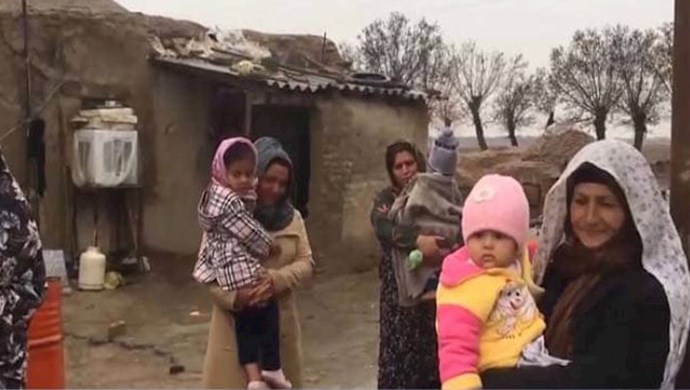Analysis by PMOI/MEK
Iran, September 17, 2021—Less than a month has passed since the formation of Ebrahim Raisi’s government, a cabinet that continues the regime’s long-standing tradition of reaching deep into people’s pockets to finance its expenses. On August 29, the spokesman for the regime’s electricity industry announced the possibility of increasing electricity exports to Pakistan. This comes at a time when the media wrote on the same day that power blackouts have returned to Iranian homes across the country.
"On the same day that the blackout schedules were published, CEO of the Iran Electricity Network Management Company said we have the opportunity to increase the supply of electricity to Pakistan and Afghanistan by more than 400 MW," according to an August 29 report by the state-run E’temad daily.
One of the goals of Iraqi Prime Minister Mustafa al-Kadhimi's visit to Iran was to discuss the export of electricity and gas to Iraq.
"Iraq's prime minister says his country needs Iran’s gas and electricity," according to the Middle East News website on September 12.
The question is, if the regime has the ability to increase electricity exports, why it is not able to supply electricity to Iran’s people and industries?
Many people have to live without electricity during the summer season and endure the hottest days of the year. All the while, the electricity needed for their homes is exported to Pakistan, Afghanistan, and Iraq, or is used to generate cryptocurrencies by regime-linked entities.
"Cryptocurrency production sites consume as much electricity as the city of Mashhad (home to an estimated population of 3.2 million). An average of 300 MW of electricity is consumed to extract each bitcoin, equaling the electricity consumption of about 3,500 residential units per day. Unauthorized cryptocurrency farms discovered by the Tavanir Company show that 57 percent of illegal mining operators use industrial electricity, 12 percent used household electricity, five percent use agricultural sources, and about ten percent were without specific branches," according to a September 12 report posted in the Bazar website.
The state-run Arman newspaper, referring to an execute order issued by former regime president Hassan Rouhani's order that “cryptocurrency production should be stopped until September,” came to the following conclusion: "So it became clear that cryptocurrencies were produced in the country with authority from the government. An issue which they had hid from the people."
"How much is the rendered revenue cryptocurrency production that they are willing to continue the damages caused by the power outage imposed on all the people?" the Arman daily piece asked.
"As you know, the country’s biggest and most immediate crisis is power blackouts and water shortages. One day we are selling shares of river waters and demanding people to pay. Then we begin demand money from the people for drinking water. We then move on to charging the people for sewage services, and at the end of the day we even demand money from the people for various sewerage costs. We are literally sell water to the people four times," said Hossein Haghverdi, a member of the regime’s Majlis (parliament) in an interview with the state-run Khabar TV on August 25.
Khazim Delkhoosh, another Majlis member, acknowledged that electricity was four to five times more expensive under the new Raisi government. "The price of home electricity bills has increased four to five times in the last two weeks. People have shown their electricity bills and this must be stopped. Why did the Energy Ministry raise the price of electricity?" according to a September 12 report wired by the semi-official ISNA news agency.
Raisi’s pickpocketing of the people is not limited to stealing electricity and selling it. Fluctuating currency rates is another deceptive practice of his government to round up even more money.
From day one as regime president, Raisi has raised the dollar exchange rate to 280,000 rials, and as soon as he saw that the situation might get out of control, he said that the exchange rate should be controlled.
"How can they order inflation to be controlled when the head of the Central Bank has not been appointed yet?" reads an August 30 report published in the state-run Aftab Yazd daily.
The path taken by the regime’s previous governments, leaving the country's economy and people's livelihoods in the most critical state, was based on a deceptive regime initiative dubbed the “resistance economy,” dictated to them by regime supreme leader Ali Khamenei.
The main basis of this theory is financing the government through the people.
For years, various governments have been stealing from people by raising currency exchange rates and various prices of essential items.
"At the end of the day, what is Mr. Raisi's plan? He has not presented a plan yet. He is somehow suffering from merely seeing to everyday routines. That is, Mr. Raisi thought he only needed to appoint a cabinet and then simply travel to various provinces," said Ali Soofi from the so-called “reformist” faction, according to a September 10 report posted on the state-run Khabar Online website.
Of course, the Iranian people do not expect a plan or an actual solution from the regime. Khamenei appointed the new cabinet for the sole reason of maintaining his hold on power and preventing the people from toppling his rule.





